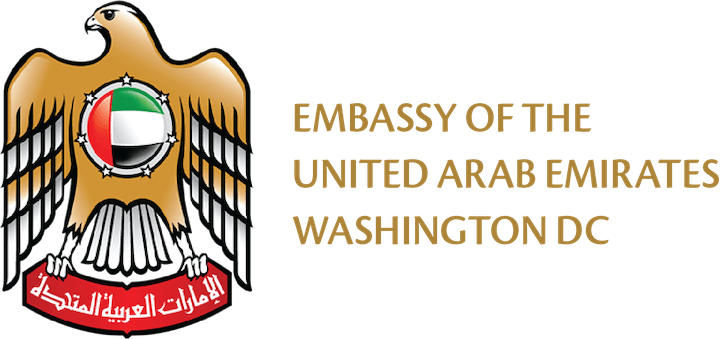The Moderate Middle East Must Act
September 10, 2014
The following op-ed by Ambassador Yousef Al Otaiba appeared in the September 10, 2014 Wall Street Journal. The full text is below.
The Moderate Middle East Must Act
By Yousef Al Otaiba
9 September 2014
Over the past few weeks the international community has been stirred to action against the rising threat of extremism—the most destabilizing and dangerous global force since fascism. From Libya to the Levant and from Iraq to Yemen, violent Islamic extremists are overwhelming the broader popular will and menacing those committed to moderation and tolerance. It may not yet be a new world war, but it is already a raging war of competing world views.
In Iraq, Yazidi girls become war prizes to be sold as wives to fighters of the Islamic State, sometimes known as ISIS. In Syria, "infidels" are beheaded in the streets. In Egypt, rampaging jihadists massacre police recruits. In Libya, extremist groups launch the country toward anarchy. In Nigeria, Boko Haram kidnaps 200 schoolgirls. In the United Kingdom, college students are recruited online to take up jihad.
Islamic extremism has long been a Middle East problem but it is now the world's problem too. It is a transnational cancer that has already metastasized into sub-Saharan Africa. Radicalized fighters returning home present a security threat to every country from the Americas to Asia.
At the NATO summit and again this week, President Obama and other Western leaders have described their interests in this struggle. But no one has more at stake than the United Arab Emirates and other moderate countries in the region that have rejected the regressive Islamist creed and embraced a different, forward-looking path.
Now is the time to act. The international community needs an urgent, coordinated and sustained international effort to confront a threat that will, if unchecked, have global ramifications for decades to come.
Any action must first begin with a clear assessment of the enemy. The Islamic State may be the most obvious and dominant threat at present, but it is far from the only one. An international response must confront dangerous Islamist extremists of all stripes across the region. This includes many groups already designated as terrorist organizations by the U.S. government: Al Nusra Front in Syria, Ansar al Shariah in Libya and Tunisia, Ansar Bayt al Maqdis in Egypt, AQAP in Yemen and AQIM in North Africa.
Second, there must be a clear plan for direct intervention. It must include strengthening local forces on the ground that already are directly engaging the extremists. This means training, weapons, logistics and communications. It also means supplementing local forces with assets like air support, surveillance and special forces. It is a role the U.A.E. has consistently taken on before in international counterterrorism and peacekeeping missions in Afghanistan, Kosovo and Somalia.
Third, the coalition must confront not just the fighters but the support networks too. A successful campaign to defeat Islamist extremism in the long term must confront the transnational networks and organizations that breed and support hatred and violence in the name of religion.
Backing these support networks and organizations is a sophisticated ideological, financial and communications complex that includes countries, charities, companies and individuals. It uses social media, religious centers, banks and false fronts. It must be choked off through an organized program of better intelligence, more-aggressive law enforcement and tougher sanctions.
Fourth, if we have learned anything from the recent transitions in the region, it is that proselytizing ideology is no substitute for creating opportunity. Young people need hope and jobs, but stagnant economies, high unemployment and poverty fuel radicalization. Extremist groups prey on these vulnerabilities.
Finally, and perhaps most important, radical Islam is an existential threat to those of us who believe in the true nature of Islam as a religion of peace. We must do more to promote the voices of compassion and respect over the shouts of hatred and fanaticism.
In this spirit, the U.A.E. has built a model of tolerance and moderation in a region of extremes. Over the last generation the U.A.E. has undergone massive change without violence or radicalism, establishing itself as a haven in a very tough neighborhood. It is a way of life and a set of values we will fight to protect.
Noting the rapid rise of ISIS, U.S. Secretary of State John Kerry said that "extremists are defeated only when responsible nations and their peoples unite to oppose them." We agree and are ready to join a coordinated international response. But to be effective, the fight must be against more than ISIS. And it must be waged not only on the battlefield but also against the entire militant ideological and financial complex that is the lifeblood of extremism.
Mr. Otaiba is the ambassador of the United Arab Emirates to the United States.



